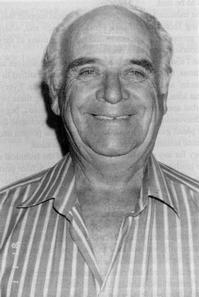


Radio Technical Officers
Foreword
Acknowledgements
Preface
Introduction
Chapter 1: The Early Years
Chapter 2: The Training School
Chapter 3: Equipment Installation Records
Chapter 4: The 'Techs' in Antarctica
Chapter 5: The 'Techs' Tell Their Stories
Appendix 1: 'Techs' Roll Call
Appendix 2: Trainee Intakes
Appendix 3: 'Techs' Who Have Served in the Antarctic Region
Appendix 4: Summary of Major Installation Projects
Appendix 5: Summary of Major Equipment Variously Installed at Sites and Maintained by Radio Technical Officers
Index
Search
Help
Contact us

The motivation to record at least a significant degree of the history of the Bureau's Radio Technical Officers was always a post-retirement intention of mine, although, in actual fact, it was to be many years later, 1990 or thereabouts, before I really gave the project serious thought.
Unfortunately, due to other literary projects, it was 1995 before I finally put pen to paper and asked the Bureau if they would be interested in my proposed contribution. At the time, the realisation was strong that time indeed was critical and that any further delay would progressively make it harder to obtain a good overall history of the Bureau's 'techs', particularly information relevant to the 1940s and 1950s where, regrettably, the earlier 'techs' involved were passing on or were invalided and unable or unwilling to pass on information or, in many instances, were untraceable.

Perhaps the final motivation for publishing the story of the Bureau's Radio Technical Officers, or 'met techs' as they were more commonly known, was the untimely deaths of Bruce (Strawb) Aubrey, former Regional Maintenance Officer (RMO) (Queensland), and Bob West, former RMO (New South Wales) and, earlier, one of a number of installation supervisors in Head Office. These two personalities were household names amongst the technical fraternity for so many years. The cruel realisation of mortality became obvious; time was the essence.
I have no hesitation in stating that the dedication and outstanding service of the Bureau's radio technical staff, often accomplished under harsh conditions and lack of facilities, deserves to be told for posterity for the families of those 'techs' now deceased, and as a historical reference for serving and future Technical Officers.
Bureau 'techs' could well be considered unique in the Australian Public Service. From the modest embryonic formation of Radio Mechanics after WWII, through the hard fight for recognition of technical professionalism, the emergence of the Observer (Radio) classes, the many busy and exciting years of the 1950s, 1960s and early 1970s when station 'techs' were on hand to maintain equipment, the gradual development of significant technical expertise in keeping with the sophisticated and complex meteorological equipment in the 1980s and 1990s is a proud history of struggle, dedication but ultimately success. The Bureau's 'techs' played a significant role in the development of meteorological services over a period of nearly 50 years. Their story deserves to be told.
People in Bright Sparcs - Clarke, Raymond W.
 |
Bureau of Meteorology |  |
© Online Edition Australian Science and Technology Heritage Centre and Bureau of Meteorology 2001
Published by Australian Science and Technology Heritage Centre, using the Web Academic Resource Publisher
http://www.austehc.unimelb.edu.au/fam/1174.html